A Man at Diva Fest
Stuart Bousel Adapts Kristin Hersh’s Rat Girl
Bay Area playwright Stuart Eugene Bousel came across Kristin Hersh, lead singer of the alternative rock band Throwing Muses and the subject of his new play, Rat Girl, as he says, “through the back door.” Hersh’s band mate (and stepsister), Tanya Donelly, was in a band called Belly after her Throwing Muses era, and that group created the first CD Bousel ever bought, at the age of 14.
Even when Bousel, who grew up in Tucson and moved to the Bay Area in 2002, became a fan of the Throwing Muses, in college, it wasn’t until he read Hersh’s memoir, which is also called Rat Girl and from which he adapted his play, that he began to truly appreciate Hersh.
The book, published in 2010, chronicles the time when the Throwing Muses were writing the songs of their first album, which was untitled but is usually called Throwing Muses, in Newport, Rhode Island, in 1985-86. During this time Hersh both got pregnant and was treated for bipolar disorder.
This month, Bousel’s play is being produced as part of a long-running San Francisco feminist theater festival, Divafest, at the Exit Theatre—the first play by a man to be a part of the festival in years.
Most non-musicians Bousel talks to have never heard of Hersh. “Throwing Muses in their entire discography have never had an album go gold,” he says. “They’ve never had a top-forty hit. [Hersh] is such a musician’s musician. If you talk about her with musicians, they’re like, ‘Oh my god, I know who Kristin Hersh is,’ whereas with every theater person I’ve talked to I’ve had to explain who she is. She’s never been a pop musician. Or as she says in the play and in the book, ‘I make unpopular popular music.’”
Hersh and Throwing Muses were part of the burgeoning alternative music scene in the eighties. Made up of both white and black members—a rarity in rock music—the band formed when Hersh was fourteen, and she was just eighteen when her memoir, which grew out of her diaries at the time, begins.
The Throwing Muses weren’t just ahead of their time in their gender and racial makeup; they were also innovative in that the women actually played guitar, and not as a solo act, which was extremely rare in the eighties. Then there was their music. “When you think about the music that was popular in 1985-1986, when that first album came out, it wasn’t a ten-song album that’s essentially a long suicide note,” says Bousel. (One of the album’s songs, perhaps its most unbearably sad, is called “Delicate Cutters.”)
Though they were never mainstream, the Throwing Muses were the first American band to sign with British label 4AD; they also influenced countless other bands. Part of what’s drawn Bousel to her story is that she’s kept playing despite never getting famous. (The Throwing Muses have never broken up.) “The older I get,” he says, “and the more I realize that I’m probably never going to be this mainstream theater success story, the more I find myself relating to people like this and realizing that most of my idols throughout my life have been a history of arts’ lesser-known—interesting footnotes—but also people I consider incredible craftsmen.” Bousel adds, “There’s a great moment in the book when one of the reporters says, ‘In every movement of music, there are the people who create it, and then there’s the band who becomes famous for doing it.’”
Part of what’s drawn Bousel to [Kristin Hersh's] story is that she’s kept playing despite never getting famous.
“So much of my identity as an artist the last few years has been about me truly embracing the fact that I like being this indie artist,” he continues. “Working with someone else who’s just really happy with where she’s at has been amazing.”
Part of what drew Bousel to adapting the memoir was Hersh’s language. “She has a good ear for dialogue,” he says. “She really dwells in conversations. As I was writing the play, I was astounded by how much editing I had to do. She really leaves in every aside, every meandering thought, the way people just talk, which is not how we talk in plays.
“At the same time,” he continues, “I also found it fascinating how in the book she splices song lyrics with memories that are outside that one-year context of the prime narrative. To me she captured the way our minds skip around.”
A deeper but related challenge for Bousel in adapting the book was the simple fact that it was written in the first-person. Aside from Kristin and one other character, he says, “Everyone else was a sketch from Kristin’s perspective. They had little moments—they were all charming sketches. With each subsequent draft, the real challenge was making them into fuller richer people, understanding that they were never going to be as full and rich as [Hersh]. The play is about Kristin. But the other people still need to be characters that actors can develop and portray.”
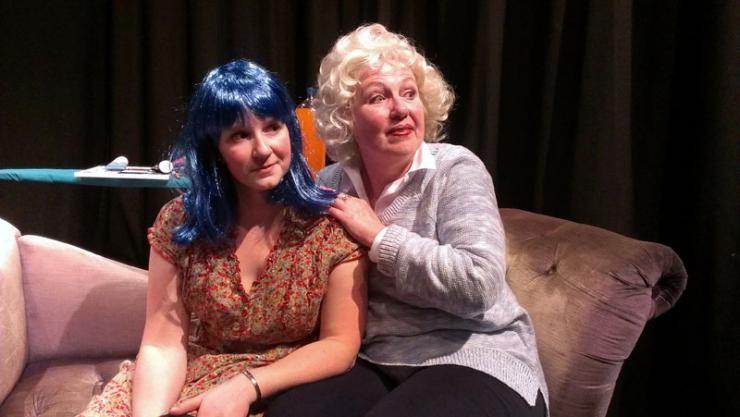
Bousel has adapted a number of works before, and he can practically pinpoint when the crucial shift in the adaptation process will occur: “Somewhere between drafts two and three I made a choice to let it be a play and to put more of myself in it. For every adaptation I’ve ever done, there’s a point where that happens. I always start out being super reverent of the material, and then usually my first draft is really long, really a narrative, and really, really, really full of everything. And then somewhere between the second draft and the third draft or the third and the fourth is where I will realize that it’s okay for me to put myself in there. Cutting means one thing, but I’ll start to actually put my own spin on stuff. I’ll change the lines to suit what I think are important elements of the character. I’ll start being more of a storyteller and not a story vessel, less of a scribe. Like every storyteller, I’ll start to downplay the parts I don’t like; I’ll just kick out a few things; I’ll combine a few characters…You start to morph it into your own thing.”
Bousel, who also works as a director, among his many roles in the Bay Area theater scene (though his frequent collaborator Claire Rice is directing Rat Girl), saw the story of Rat Girl as a great opportunity for female performers. The character of Kristin, in particular, played by Heather Kellogg, allows a female performer to play a kind of character not often seen on our stages: deeply flawed but able to laugh at herself; talking passionately and intelligently about her art while having a complicated, often reluctant relationship with it.
“In some ways her story’s quintessentially female,” Bousel says. “She’s crazy; she’s struggling with some sort of social rejection; and then she gets pregnant. Everything that happens to her is like what happens to women in plays. Her ability to get through it all is what sets her apart. I love that the father of her child is never part of the story. She just makes that choice. When she finds out she’s pregnant, she just skips a line, does a little ‘aside’ paragraph and says, ‘So, sometimes guys are into girls like me. That’s all I’m going to say about that.’ [Her son’s] father is not someone she wants to put in the book.”
Bousel amplified that aspect of the story by not ending his play when Kristin gives birth, as the book concludes. “I don’t want this to be a story about a woman who’s saved by having a baby,” he says. “The first two drafts ended with her having the baby, and [Rice] was like, ‘What if she doesn’t have the baby at the end? What if she’s still pregnant?’ We know that she’ll have the baby and she’ll be fine. But if it ends with her pregnant, it’s still about her, whereas if it ends with her holding a baby toy, then suddenly it’s about her having a baby.”
Bousel sees his play as chronicling an artist’s relationship with her art. “To me,” he says, “the play is about this young woman who is incredibly gifted who goes on a road of self-discovery, but a completely accidental and unwished-for one. She’s pushed into this discovery when her body and mind break. [The play] is about her recovery from that and her first steps towards embracing her own muse. It’s really about an artist’s relationship with a muse—what she calls ‘Evil Kristin.’ It’s not that she realizes that Evil Kristin can’t be channeled any more. It’s that she realizes Evil Kristin never really existed. That’s what she called her talent, but the truth is there is no Evil Kristin. There’s just Kristin.”
Though the eight-person ensemble performs Throwing Muses songs throughout Rat Girl, Bousel calls the show a “play with songs” rather than a musical—that category he reserves for shows whose music develops plot and characters. “It’s not a musical in the sense that—though the music does illustrate mood and ideas and what Kristin’s going through—there are no soliloquies. There’s no point at which Kristin gets up and sings, ‘This is what I’m feeling.’” Rather, he says, “The music here is a manifestation or outgrowth of what she’s experiencing. Kristin thinks in music. We use the music to illustrate that, that those are moments when Kristin’s thinking or going through something.”
The fact that Rat Girl tells a women’s story that our stages do not often tell is what got it picked up by Divafest, which features five shows and runs throughout May. But that wasn’t a simple process for Bousel. “I’m being produced by a feminist theater festival, which was a complex conversation,” he says. “Divafest is about advancing women-centric work. But there’s a very wide interpretation of what that could mean. When I approached [Exit Theatre artistic director Christina Augello, who also plays Betty in this production] with this project, I said, ‘It’s still Kristin’s work. It’s just my work, too.’”
Augello was on board, predicting that men’s involvement would be key to the festival’s long-term survival. But it still wasn’t easy. “It was not a thing that everyone was comfortable with at first,” says Bousel. “We definitely had some pushback. There was a day when Christina had to say, ‘Stuart’s a man. Deal with it. He’s not the first man to be involved with Divafest, and he won’t be the last.’”

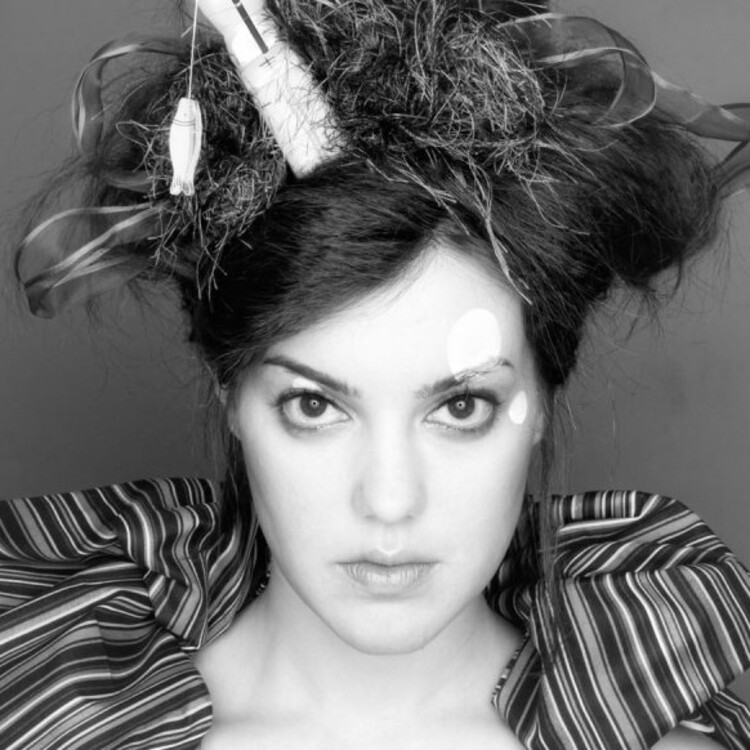
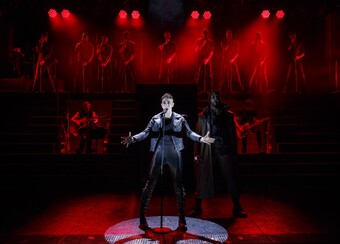

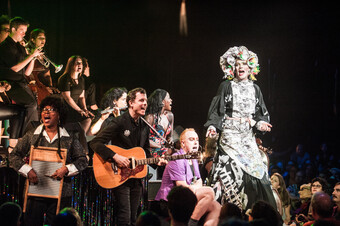

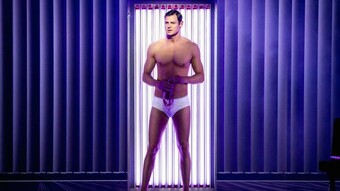

Comments
The article is just the start of the conversation—we want to know what you think about this subject, too! HowlRound is a space for knowledge-sharing, and we welcome spirited, thoughtful, and on-topic dialogue. Find our full comments policy here